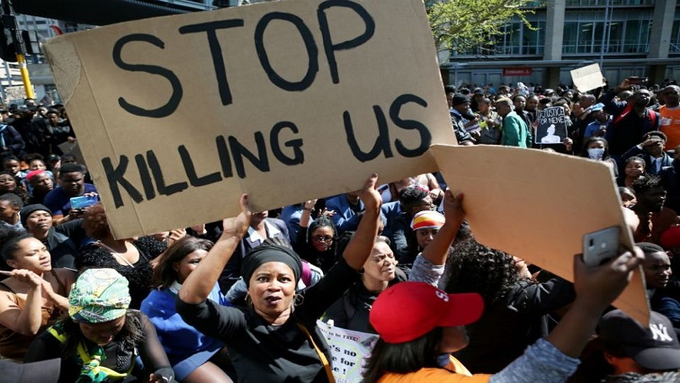The Pan-African Parliament (PAP), through its women’s caucus, and the United Nations Population Fund (UNFPA) have urged National parliaments to fight against gender inequalities and increasing Gender-Based Violence (GBV) due to COVID-19.
This follows a Virtual Briefing held with the Pan-African Parliament Women’s Caucus recently under the theme “COVID-19 and Gender-Based Violence (GBV): Parliamentary support to gender-responsive National plans.”
Since 2014, UNFPA has helped build the knowledge and increase the capacity of PAP Women’s Caucus members in the area of harmful practices, such as female genital mutilation (FGM) and child marriage, which are threats to human rights and human dignity.
“Allow me to congratulate the PAP Women’s Caucus, which, since its creation in 2007, provides quality expertise on women’s issues and ensures that the PAP remains committed to applying the principles of the African Union (UA) as set out in Article 4 (l) of the Constitutive Act, in particular the promotion of gender equality,” said the Acting President of PAP, Hon. Bouras DJAMEL.
He continued: “The new data on the impact of COVID-19 show an exacerbation of the difficult situations and living conditions of women in terms of health, safety and socio-economics. From the onset of the COVID-19 pandemic in Africa, Pan-African parliamentarians joined continental leaders in the tireless fight against its devastating effects. The PAP is committed to putting in place all the necessary means to ensure the implementation of key continental initiatives to absorb the effects of COVID-19.”
UNFPA Liaison Officer, Caroline NGONZE called for immediate implementation of national policy and programs that address the practical needs of women and girls and their strategic interests in multi-sectoral responses to GBV within the COVID-19 pandemic. Ngonze further suggested prioritisation of access to information for excluded women and girls, including those with disabilities – sign language, accessible digital technology and access to immediate psychosocial support/counseling – hotlines, Whatsapp etc is key.
“National parliaments must consider immediate protection (GBV shelters/safe houses; one-stop centres). There is also a need to access medical services equipment, medication, trained personnel for clinical management of GBV,” she said.
Sharing her presentation titled “Examining policy solutions to address the impact of COVID-19 on women”, Thokozile RUZVIDZO, Director, Gender, Poverty and Social Policy Division at United Nations Economic Commission for Africa (ECA) mentioned that COVID-19 has increased the incidence of GBV. She further suggested Concrete Policy Actions to address GBV in the Context of COVID-19.
“In any emergency or crises, whether conflict-related or disease outbreaks, pre-existing toxic social norms and gender inequality vulnerabilities worsens. COVID-19 lockdowns and restricted movements ‘imprisoned’ survivors with perpetrators and cut off access to support services. We need to combat escalating figures of GBV, in particular Domestic Violence, Continuous Engagement with Stakeholders should be maintained; Engaging CSOs, government and other partners is crucial. Provision of essential services should incorporate services for combating GBV and identifying families in distress as a result of GBV,” she said.
The webinar was also marked by interventions from various members of the PAP Women’s caucus including Hon. Workya ROUAMBA (Burkina Faso); Hon. Lucia Dos PASSOS (Cabo Verde); Hon. Khady BA (Senegal); and Hon. Carole AGITO (DRC). They shared experiences from their respective countries in dealing with GB, and pledged to ensure that the plight of women features prominently as part legislative agendas around the continent.
